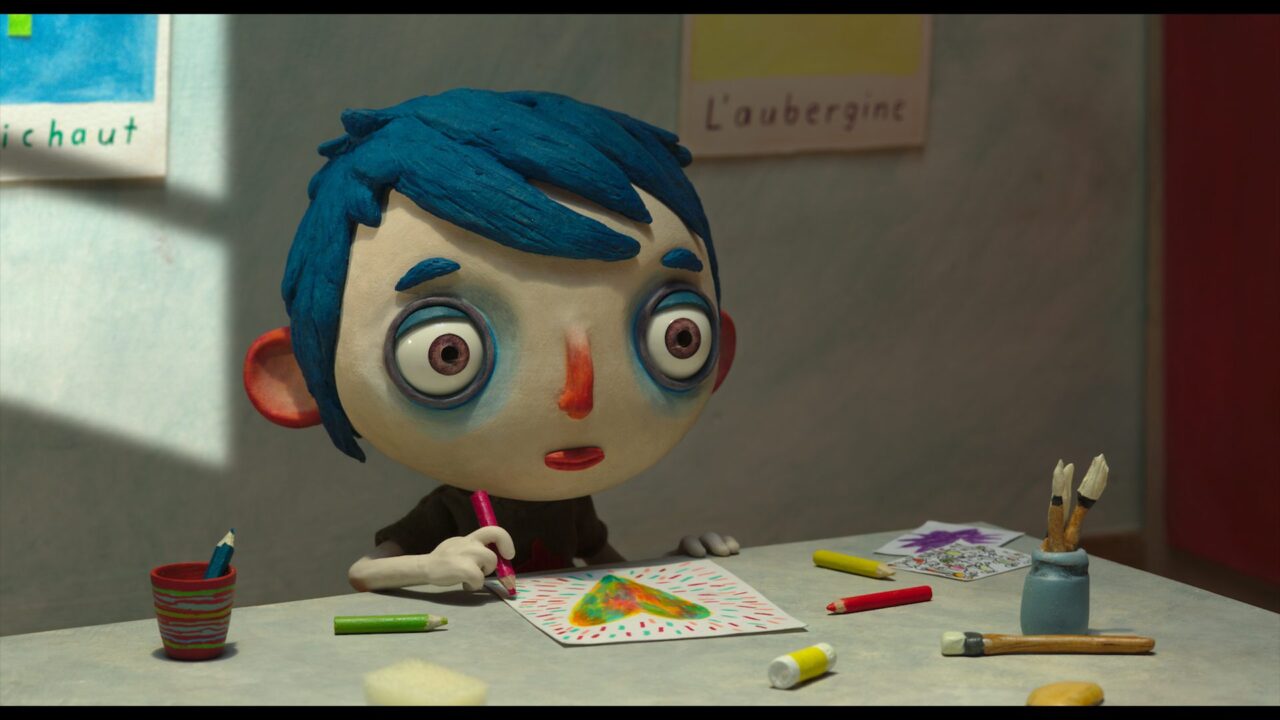A few familiar voices, including Nick Offerman and Ellen Page, voice supporting characters. Yet details throughout the movie indicate that through bringing in new voices, a lot of the flair and detail is lost in the conversion.
“My Life as a Zucchini” requires a different angle of critique than any other film from the last year. The long and short of it is that I definitely recommend seeing this Oscar-nominated, animated film; it’s sincere and touching, especially impressive in its brisk 66-minute runtime. However, there’s a major critique I have that would have made me embrace the film even more enthusiastically.
Made by a Swiss/French filmmaking team, and the first feature from Claude Barras, “Zucchini” is the story of a recently orphaned 9-year-old boy sent to live at a shelter for other children who don’t have a proper guardian. It’s a bitter pill to swallow, and yet within this band of misfits, he finds a supportive community as they all overcome their personal tribulations. The boy chooses the unflattering nickname ‘Zucchini’ because that is what his mother used to call him: it may or may not be a term of endearment, even from her. We discover that each one of these children, all of whom have overcome trauma most of us will be fortunate enough to never experience, have similar eccentricities and coping mechanisms.
The film is dubbed in English, so despite being a foreign film, there are no subtitles and the characters speak without accents. A few familiar voices, including Nick Offerman and Ellen Page, voice supporting characters. Yet details throughout the movie indicate that through bringing in new voices, a lot of the flair and detail is lost in the conversion. This hunch is confirmed in a moving post-credit sequence: a brief clip uses audio from the boy who voices the protagonist during his first audition and matches it to an animation that recreates his audition. The humility and honesty of his voice, in French, speak volumes about how well he was a match for the part. This is the only time we ever hear any of the original dialogue, and it’s perfectly suited to the style and mannerisms of the movie – it is the real McCoy.
As much as I enjoyed watching “Zucchini,” I couldn’t help but feel like I didn’t get the experience the filmmakers intended.
The goal of this dubbing is presumably to find a wider audience. This is commendable for a small film aimed at children who may not be able to read yet. But it’s also rated PG-13, perhaps unfairly, for some sexual references that are genuine expressions of children attempting to make sense of the world. This is a bit paradoxical.
As much as I enjoyed watching “Zucchini,” I couldn’t help but feel like I didn’t get the experience the filmmakers intended. This frustration leads me to hope that if the film gets a release on DVD or a streaming device, that it gives both options of the original language and the dubbed version. To me, this would be the preferred experience, and I believe could elevate this story back to its maximum potential.
“My Life as a Zucchini” is rated PG-13 for thematic elements and suggestive material. 66 minutes. Opens Friday, 2/24 at the Landmark Nuart.
H. Nelson Tracey
Nelson is a film director and editor from Denver based in Los Angeles. In addition to writing for Cinemacy, he has worked on multiple high profile documentaries and curates the YouTube channel "Hint of Film." You can check out more of his work at his website, hnelsontracey.com

